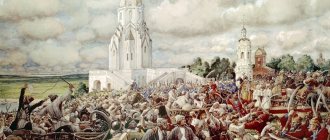There is a split. A sociologist, philosopher and psychologist talk about the conflict of generations in Russia
“Zoomers”, “digital generation”, “Tiktok generation” - there are many names for those born in the 21st century. For many years there has been a discussion about how different representatives of the new generation are from the older ones in their worldview, political views and vision of the future. We discussed with scientists whether it is possible to talk about young people as a generation and what the conflict between fathers and children looks like in modern Russia.
Useful Mela newsletter twice a week: Tuesday and Friday
SUBSCRIBE
“The situation of war with the outside world is uncomfortable for young people”
Grigory Yudin, philosopher, sociologist, professor at the Moscow School of Social and Economic Sciences
Tell us about the theory of generations in social sciences.
The theory of generations is usually traced back to the German sociologist Karl Mannheim. In the 1920s and 30s, he formulated the idea that generations arise when people living together, at the stage of their formation, go through some key historical events (the “formative period”) and live them together. The result is a multitude of people who do not know each other, but are united by a common historical experience - in this sense, they find themselves living in the same world. They perceive reality in a similar way, their experience determines their everyday behavior and preferences.
There is a difference between a sociological and a purely demographic definition of a generation. For demographers, a generation changes at the interval of 20–22 years (and this number transforms as life expectancy increases). For sociologists, there may not be a single generation at a certain stage, because they are formed precisely thanks to significant historical events.
Is it possible to apply Mannheim's theory to modern Russia? Do we have generations now?
Lately there has been a lot of talk both in Russia and abroad about the fact that now there are some very different generations: X, Z, Zoomers, Boomers, Millennials. There is always a lot of subjectiveness in such assessments. From Mannheim's point of view, these are all rather dubious classifications, because it is not clear what radical historical events could have shaped such different generations.
Of course, for many modern Russians, perestroika and the events of 1991 will be key. They greatly influenced the history of the country. But this is important for older people. And generational terminology is now increasingly used to describe young people. And here there are doubts whether we can talk about generations. Are 20-year-old Russians, for example, radically different from 30-year-olds? It is unclear because it is difficult to find any defining events that would separate them from the rest. Probably the events of 2011–2012 and 2014 are important. But have they affected people's daily lives? Not sure. Definitely not as strong as the events of 1991.
Okay, 20-year-old and 30-year-old Russians may not be too different. What about 20-year-olds and all those who grew up in the USSR and found the year 1991?
I'd say there's probably a split between the older groups (grandparents) and everyone else. Older people may well form a separate generation. They experienced a series of events that brought them together - and determined how they would see their lives. This is noticeable in polling data on key political indicators, especially over the past three years.
People who are now 55 years of age or older represent a generation whose lives were largely shaped by the Cold War and the events of the 1980s.
The Afghan war, Chernobyl, and 1991 are important here again (but it is important not to confuse real events and later mythologies about them). For this generation, the natural frame of life is the late Soviet picture of the world with the contours of the Cold War (the confrontation between two warring sides) and largely focused on consumption (they experienced the development of new consumption standards, their expansion). These things greatly shaped older people.
Younger people today still differ from older people for the most part in that they have not experienced all the things described at all. For them, for example, everything connected with opposition to the West and our enmity with the whole world is less clear.










